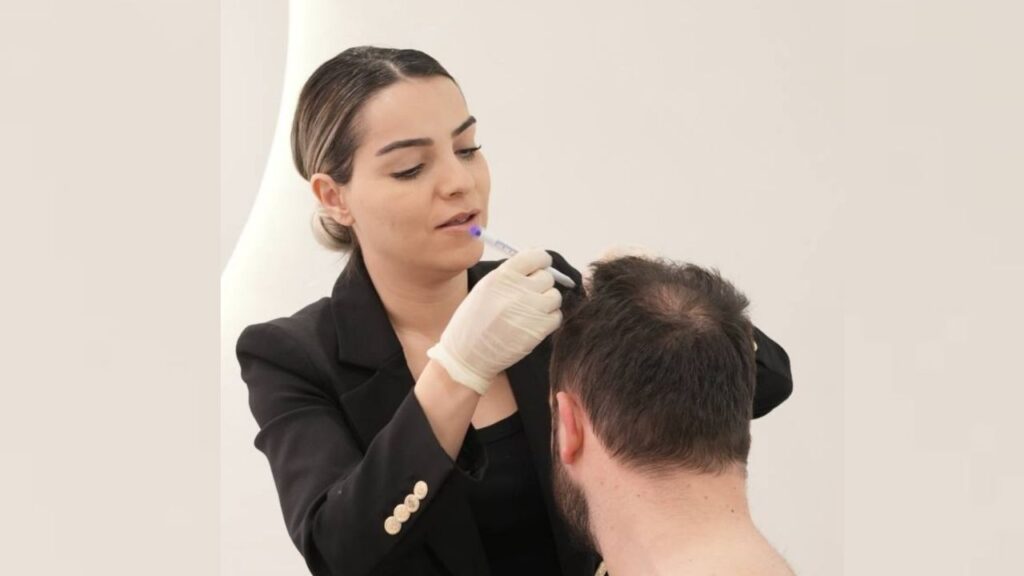Hair loss can be emotionally taxing, especially for individuals already managing a chronic condition like diabetes. For many, hair restoration feels like reclaiming not just their appearance, but their sense of control. But for diabetic patients, pursuing a hair transplant requires thoughtful planning, expert care, and a keen understanding of how the condition affects healing and results.
At ZMD Hair, we recognize that every patient’s journey is unique—especially when diabetes is part of the picture. This guide walks you through what makes hair restoration for diabetic patients different, what to expect, and how we tailor our approach to ensure safety, effectiveness, and peace of mind.
Understanding the Link Between Diabetes and Hair Loss
Diabetes, particularly when poorly controlled, can wreak havoc on the body in subtle and not-so-subtle ways—including hair health. High blood sugar levels reduce blood flow to the skin and scalp, weakening hair follicles and causing them to shed or shrink over time.
In addition, hormonal imbalances and insulin resistance may disrupt the natural hair growth cycle. Diabetic patients often experience diffuse thinning, slow regrowth, or even alopecia areata in more severe cases. Stress, medication, and autoimmune responses only add fuel to the fire.
Is Hair Transplantation Safe for Diabetic Patients?
Yes—but with caution.
Diabetes does not automatically disqualify someone from undergoing a hair transplant. However, the safety and success of the procedure hinge on how well the diabetes is managed. Patients with uncontrolled blood sugar levels face a higher risk of infection, slow wound healing, and graft failure.
At ZMD Hair, we screen and assess each diabetic patient thoroughly before recommending a procedure. Pre-operative lab work, detailed medical history, and coordination with your primary care physician are crucial steps to ensure your health and eligibility.
Pre-Operative Considerations
Before a hair transplant can proceed, several diabetic-specific factors must be addressed:
Blood Sugar Control
Stable blood sugar levels are non-negotiable. We typically recommend that HbA1c levels be below 7%, which indicates well-managed diabetes. This helps ensure your body can heal effectively and reduces surgical risks.
Medication Management
Some medications used in diabetes management—especially blood thinners—may need to be adjusted before surgery. We work closely with your physician to strike a safe balance without interrupting your diabetes regimen.
Nutritional and Vascular Health
A diet rich in essential nutrients, hydration, and good circulation supports healing. Diabetic patients with peripheral vascular disease or other complications may need alternative solutions to surgical hair restoration.
Choosing the Right Hair Restoration Method
Not all techniques are equal for diabetic patients. At ZMD Hair, we favor minimally invasive techniques like FUE (Follicular Unit Extraction) for individuals with diabetes. Here’s why:
FUE: Gentle Yet Effective
FUE involves extracting individual follicles from the donor area and transplanting them into thinning areas. The incisions are tiny, the bleeding is minimal, and the overall trauma to the scalp is reduced—an ideal match for diabetic patients with slow healing tendencies.
FUT: More Invasive, Higher Risk
While FUT (Follicular Unit Transplantation) can be effective, it involves a larger incision and longer recovery time. For diabetic patients, this method may increase the risk of scarring and post-operative complications. That’s why we typically recommend FUT only in very specific scenarios.
What to Expect During Recovery
Recovery for diabetic patients follows a similar timeline to other patients—but with a few added precautions:
First Week: Extra Vigilance
You’ll experience typical symptoms like swelling, redness, and crusting. However, monitoring for signs of infection is critical. Follow wound care instructions meticulously and keep blood sugar levels steady to prevent complications.
Weeks Two to Four: Watch for Delayed Healing
Some diabetic patients may notice slower shedding of scabs or mild inflammation lasting a bit longer. This isn’t necessarily a red flag—but we stay in close contact during this phase to address anything unusual early.
Long-Term Regrowth: Patience Pays
New hair starts to grow between 3 to 6 months post-op, with fuller results emerging after 9 to 12 months. Diabetic patients may see slightly slower or staggered regrowth, but results are still very much achievable with the right care and guidance.
Ongoing Care and Lifestyle Support
Diabetes doesn’t pause once the transplant is over—and neither should your self-care. Maintaining your hair restoration results requires continued commitment to your overall health.
Scalp Health Matters
Gentle cleansing, hydrating products, and possibly PRP therapy (Platelet-Rich Plasma) can help support new growth. We may recommend specific products to reduce scalp inflammation and improve circulation.
Diet and Supplements
Iron, biotin, zinc, and omega-3 fatty acids can all contribute to healthier hair. We’ll help you design a nutrition plan that supports your hair while complementing your diabetes care.
Follow-Up is Everything
At ZMD Hair, we schedule regular check-ins to monitor your healing and hair regrowth progress. No two cases are alike, and our post-operative care adjusts to your body’s signals every step of the way.
Emotional Wellness and Confidence
Hair loss can damage self-esteem, especially for those already navigating the daily realities of diabetes. Hair restoration is more than cosmetic—it’s deeply emotional.
Our team is trained not only in surgical excellence but in compassionate care. We understand the fear, the doubt, and the hope that walk into our clinic with you. We don’t take that lightly.
Conclusion: Your Hair, Your Health, Your Future
Hair restoration is absolutely possible for patients with diabetes—it just requires a different kind of care. At ZMD Hair, we don’t believe in one-size-fits-all treatments. We believe in personalized, medically sound, results-driven care that meets your unique health needs.
Whether you’re dealing with early thinning or significant hair loss, we can help you rediscover your confidence—safely, strategically, and with lasting results.
Ready to take the next step?
Schedule your personalized consultation today at ZMD Hair. Let us guide you through a hair restoration plan that works in harmony with your diabetes care—because you deserve to look and feel your best.




